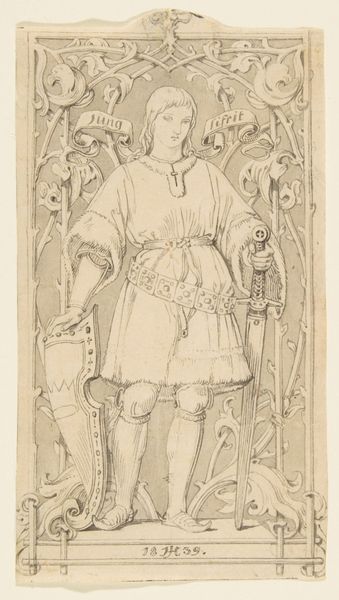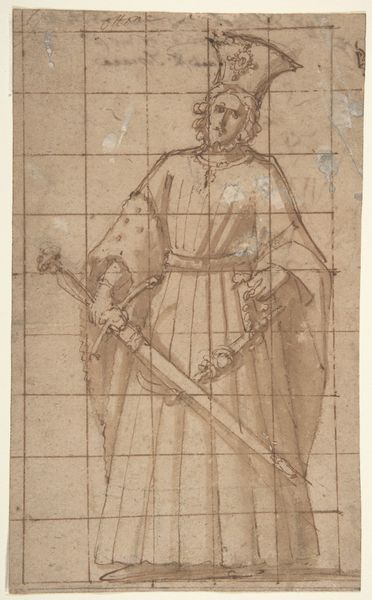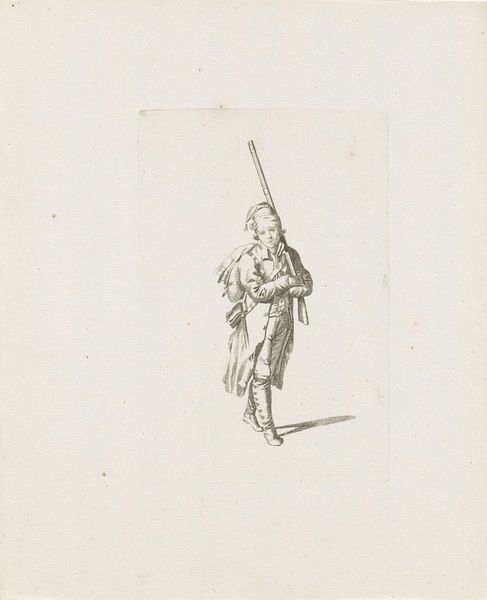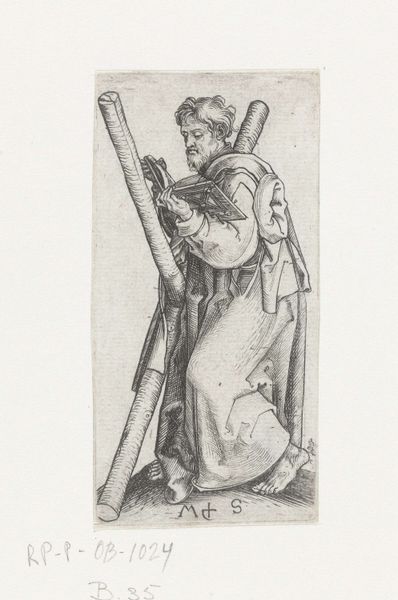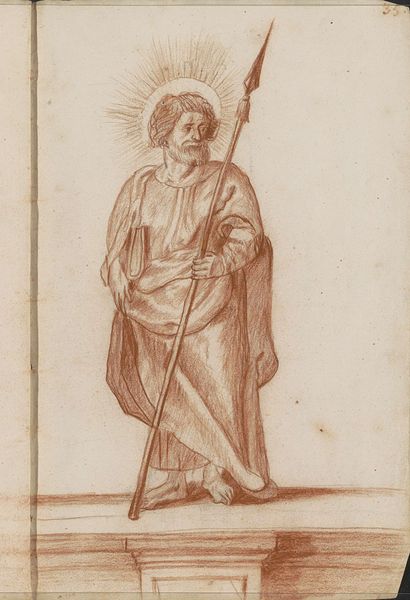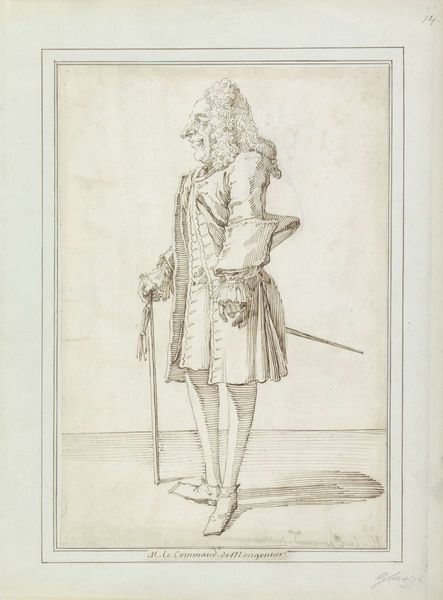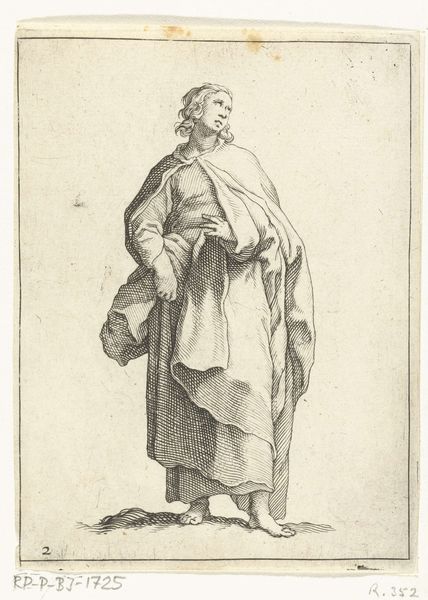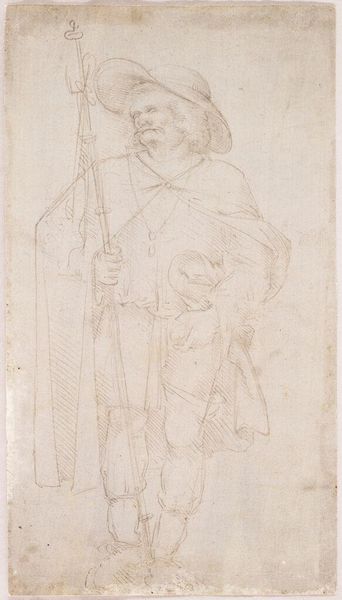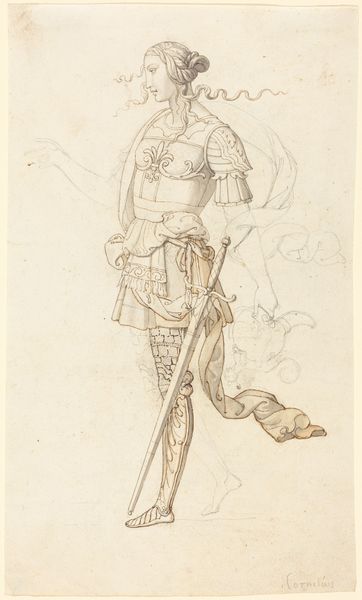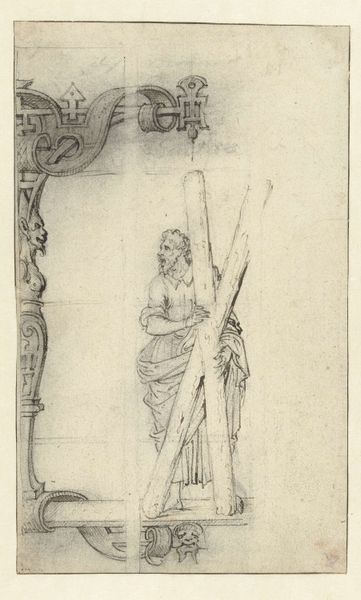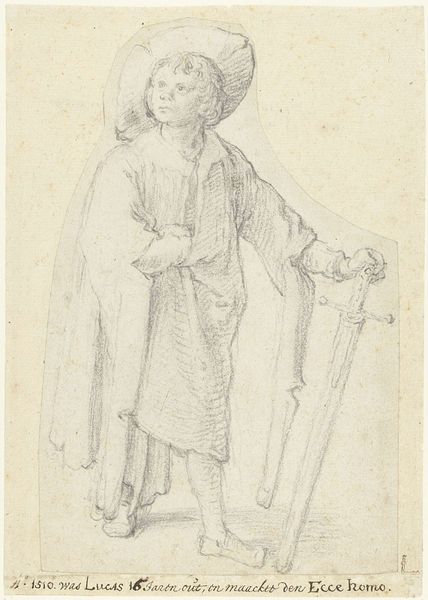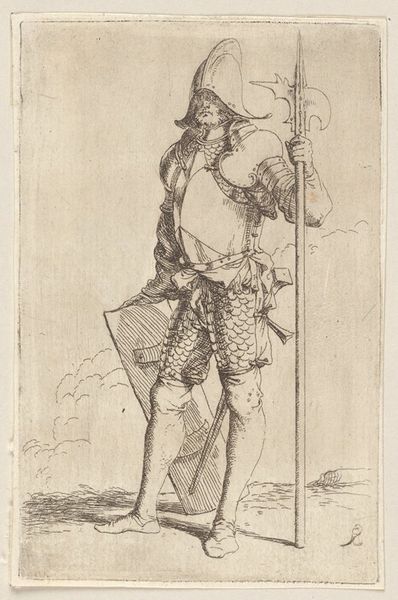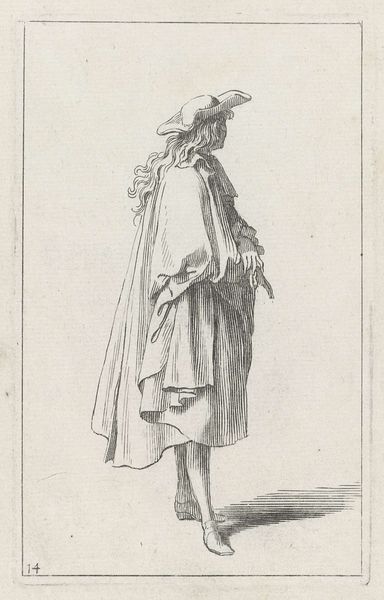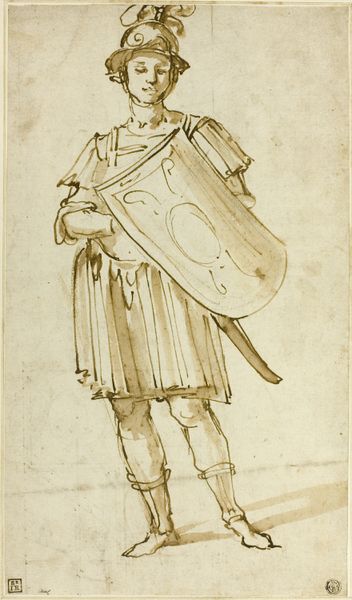
Ontwerp voor een standbeeld van een pelgrim of Jakobus Major 1803 - 1868
0:00
0:00
louisroyer
Rijksmuseum
drawing, pencil
#
portrait
#
drawing
#
neoclacissism
#
light pencil work
#
quirky sketch
#
pencil sketch
#
figuration
#
personal sketchbook
#
idea generation sketch
#
sketchwork
#
pencil
#
sketchbook drawing
#
pencil work
#
sketchbook art
#
initial sketch
Dimensions: height 189 mm, width 122 mm
Copyright: Rijks Museum: Open Domain
Louis Royer rendered this sketch of a pilgrim, or perhaps Saint James the Greater, in the nineteenth century using graphite. This figure is adorned with the traditional garb of a pilgrim: a cloak, a staff, and a gourd for water. Observe the staff, the pilgrim's most reliable companion, which resurfaces in various guises throughout history. In classical antiquity, Hermes, messenger of the gods, bore a caduceus, a staff entwined with snakes, symbolizing commerce and negotiation. This emblem has been traced to the rod of Asclepius, the god of medicine, thus evolving into a symbol of healing. Similarly, the pilgrim's staff embodies spiritual and physical support, a visual echo resonating through diverse cultures and eras. Consider also how the simple act of pilgrimage encapsulates a profound psychological journey, tapping into our collective yearning for meaning and transformation. The image of the lone traveler, staff in hand, evokes feelings of introspection and spiritual aspiration, connecting us to centuries of shared human experience. It is in this non-linear, cyclical progression that symbols resurface, evolve, and take on new meanings in different historical contexts.
Comments
No comments
Be the first to comment and join the conversation on the ultimate creative platform.
